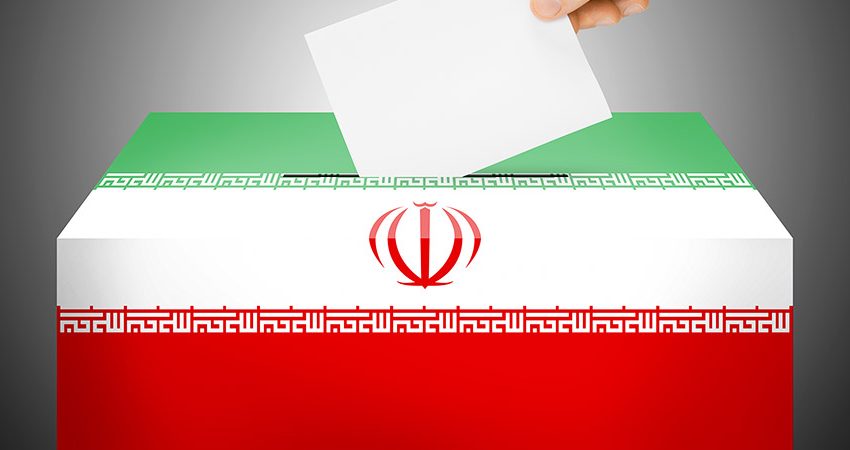Earlier this week, an Israeli military official evoked “a worst-case scenario” conducted by three Israeli infantry brigades that would amount to crushing Gaza on the ground rather than just bombarding it. Some observers have noticed that the current worse-than-ever-before-but-not-as-bad-as-what’s-to-come scenario has miraculously permitted Benjamin Netanyahu, the Israeli prime minister, to hang on to power after the March 23 election deprived him of the hope of heading a new coalition.
The Future of Jerusalem Matters to Us All
Washington Post reporter Steve Hendrix notes that “the escalation of fighting brought a last-minute reprieve from what could have been the end of [Netanyahu’s] record run at the top of Israeli politics.” Hendrix quotes Gayil Talshir, a professor at Hebrew University: “The riot came just in time to prevent the change of government in Israel.” Despite this “coincidence,” Hendrix avoids suggesting what some suspect: that Netanyahu’s policies and recent actions may have been designed to provoke the current crisis.
Rather than delve into history, reflect on the meaning or explore possible hidden motives, Hendrix prefers the approach that Western media have long preferred: presenting the Israeli-Palestinian conflict as a combined violent chess game and political popularity contest between two obdurate parties whose leaders are unwilling to compromise. Hendrix reduces an enduring historical drama of vast geopolitical dimensions to a petty game of leaders seeking electoral advantage by appealing to their base, à la Donald Trump. He calls the new wave of violence “a boon to the leaders of both camps — Prime Minister Benjamin Netanyahu and Hamas militants — who have been struggling and scraping to salvage their political standing.” That’s the kind of narrative that appeals to The Post’s readers living in their bubble within the Beltway. History be damned; this is electoral politics.
Amid news came closer to signaling Netanyahu’s implication in the current troubles. Isabel Kershner cites centrist opposition leader Yair Lapid, who “blamed the prime minister for the spiraling sense of chaos.” Kershner focuses on the likelihood that Israel will at some point in the near future have a coalition government including Mansour Abbas’ Islamic Raam party, which would mark a monumental change in Israeli politics. In the end, however, Kershner appears to believe that it’s still Netanyahu who will emerge from the rubble as the leader of whatever unstable political coalition he can cobble together.
As the violence escalates, the world wonders what US President Joe Biden intends to do. Secretary of State Anthony Blinken was the first to express the administration’s take, which for the moment sounds like an endorsement of the status quo: “There is, first, a very clear and absolute distinction between a terrorist organization, Hamas, that is indiscriminately raining down rockets, in fact, targeting civilians, and Israel’s response, defending itself.” The idea that Biden’s administration might try, for once, to play the role of honest broker would seem dead in the coastal waters of Gaza.
Blinken’s recognition of Palestinian suffering only appeared when he claimed that Israel has “an extra burden.” This, of course, implies that its main burden consists of “targeting terrorists” in response to indiscriminately launched rockets. The “extra burden” consists of trying “to prevent civilian deaths, noting that Palestinian children have been killed in Israeli strikes.”
Today’s Daily Devil’s Dictionary definition:
Contextual Note
Thanks to the growing realization that Israel is firmly set on maintaining an apartheid state, for the first time in decades, US politicians have begun to wonder whether it makes any sense to continue the nation’s unconditional support of every Israeli government. Israel has continued expanding its illegal settlements in the Occupied Palestinian Territories in direct violation of UN resolutions and the Geneva Convention. The current troubles began with Israel’s brazen attempt to evict Palestinian families from their homes in East Jerusalem and replace them with Jewish settlers, followed by the storming of Al-Aqsa Mosque.
For Blinken, the social and historical context of these events simply doesn’t exist. He wants people to believe it all started with the launching of rockets by the Palestinians. Nor do context and historical reality interest Defense Secretary Lloyd J. Austin III, who insisted that details are irrelevant when the US has vowed “‘ironclad support’ for Israel’s right to defend itself.” This is totally consistent with Biden’s promise, in a phone call this week to Netanyahu, of “unwavering support” for Israel’s “right to defend itself.”
Blinken showed less concern for the possible war crimes now taking place than for the bad PR they might generate. “[W]henever we see civilian casualties, and particularly when we see children caught in the crossfire losing their lives, that has a powerful impact,” he said. Blinken worries about what “we see” and its “impact” in the media. This implies that if we didn’t see it and if the impact was reduced, all would be well. Ignorance is bliss.
Biden reinforced everyone’s expectation that there would be nothing new under the shining sun of US diplomacy when he offered this comment: “My hope is that we will see this coming to a conclusion sooner than later.” What conclusion is he thinking of? And why is an American president just hoping that something good will happen? Why isn’t he intervening to facilitate not a “conclusion” but a resolution? Some will point out that every US president’s hands are tied by a status quo that holds as its first commandment, thou shalt never criticize Israel, its leaders or its policies.
Historical Note
Following World War II, Western nations assumed the entire civilization’s shame at the crimes of Nazi Germany. The British used the newly created United Nations as the instrument by which the West could atone for Germany’s racist sins through the creation of the state of Israel in 1948.
Once that was done, the die was cast. The West, led by the British — who had assumed “responsibility” for the region of the former Ottoman Empire — decided how and at whose expense (not their own) the surviving European Jews might be rewarded. Giving them Palestine seemed like the easy way out for the Western world as a whole. The British wanted out anyway. It also had the advantage of establishing a state in the Middle East whose culture would be basically Western and European.
Neither the British, the Americans nor the French — all in various ways implicated in the new order to be established in the Middle East — imagined that Israel would evolve to become an aggressive nation increasingly focused on bullying its neighbors and claiming its own particular version of exceptionalism. French President Charles de Gaulle was the first to notice it, on the occasion of the Six-Day War in 1967. Western leaders may have naively believed that the same Arabs who allowed themselves to be bullied by the Turks for centuries would accept with docility the rule of their new masters, who claimed to be building a modern nation on socialist and egalitarian principles.
In the first decade of Israel’s existence, the US refused to identify with the new nation’s interests, notably during the Suez Crisis in 1956 in which the Eisenhower administration countered the Franco-British alliance. It also viewed with hostility the presumed socialist ideology of Israel. At the time, the WASP (white Anglo-Saxon Protestant) elite maintained a lingering anti-Semitic bias. But as the Cold War evolved and the importance of the oil economy grew, leading to increasing tensions between the West and the Muslim world, by the 1980s, the US was on track formulating its current “unconditional,” “iron-clad” alliance with Israel.
This gradual evolution toward a position of increasingly blind support of Israel has had a profound influence on Western media in its reporting on the enduring, increasingly unresolvable conflict between the Jewish state and its Arab inhabitants. Western news media have largely accepted the role of encouraging their audience to sympathize with white, essentially European and American Israelis who feel threatened in an alien, hostile Orient.
Greg Philo in The Guardian shows that an analysis of Western media in its reporting on the Israeli-Palestinian conflict has, for decades, reflected “a strong emphasis on Israeli perspectives.” What better illustration than yesterday’s Washington Post: “Israeli jets strike Gaza; Hamas launches rockets as Israeli ground troops stand by”?



